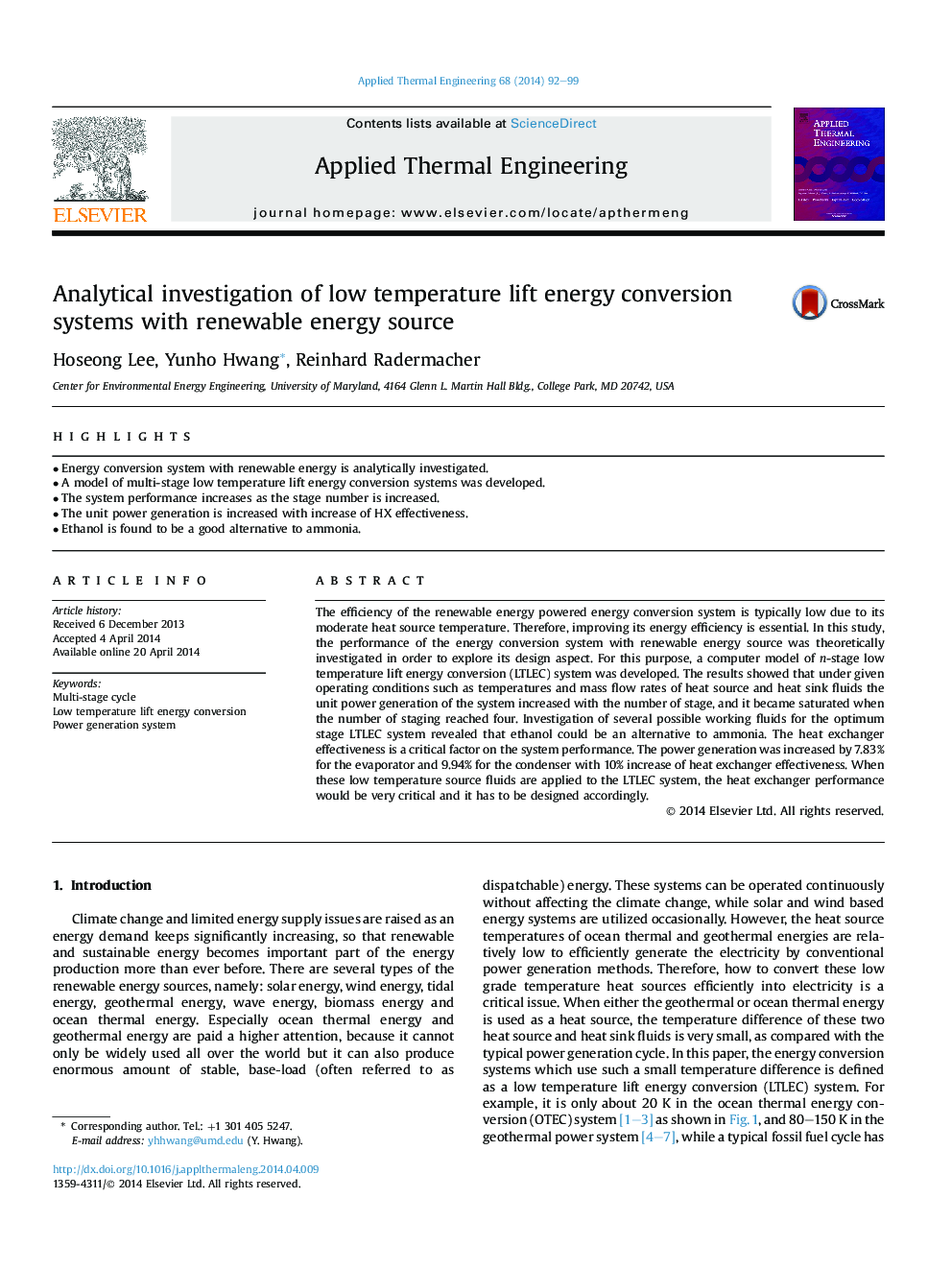| Article ID | Journal | Published Year | Pages | File Type |
|---|---|---|---|---|
| 646235 | Applied Thermal Engineering | 2014 | 8 Pages |
•Energy conversion system with renewable energy is analytically investigated.•A model of multi-stage low temperature lift energy conversion systems was developed.•The system performance increases as the stage number is increased.•The unit power generation is increased with increase of HX effectiveness.•Ethanol is found to be a good alternative to ammonia.
The efficiency of the renewable energy powered energy conversion system is typically low due to its moderate heat source temperature. Therefore, improving its energy efficiency is essential. In this study, the performance of the energy conversion system with renewable energy source was theoretically investigated in order to explore its design aspect. For this purpose, a computer model of n-stage low temperature lift energy conversion (LTLEC) system was developed. The results showed that under given operating conditions such as temperatures and mass flow rates of heat source and heat sink fluids the unit power generation of the system increased with the number of stage, and it became saturated when the number of staging reached four. Investigation of several possible working fluids for the optimum stage LTLEC system revealed that ethanol could be an alternative to ammonia. The heat exchanger effectiveness is a critical factor on the system performance. The power generation was increased by 7.83% for the evaporator and 9.94% for the condenser with 10% increase of heat exchanger effectiveness. When these low temperature source fluids are applied to the LTLEC system, the heat exchanger performance would be very critical and it has to be designed accordingly.
